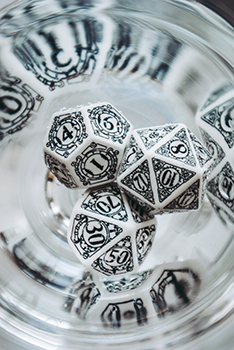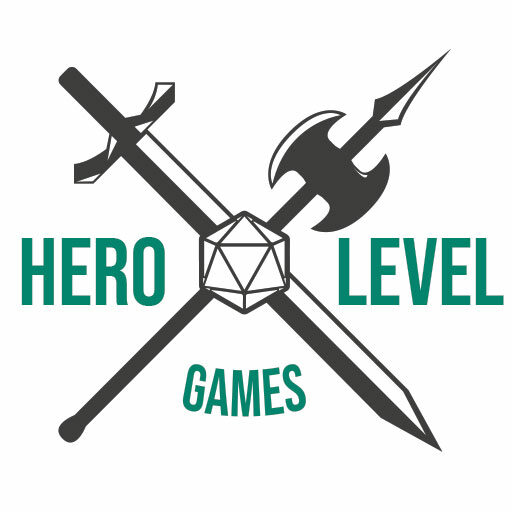The Best Dungeons and Dragons House Rules: Guide
 These are the best Dungeons and Dragons house rules that we have come across. We love them because they ramp up tension, keep things interesting and make important moments count.
These are the best Dungeons and Dragons house rules that we have come across. We love them because they ramp up tension, keep things interesting and make important moments count.
1 Blind Death Saves
Most virtual table top software solutions allow players to send rolls to the DM that only the DM can see. Make your players do this for their death saving throws.
As a player you are on the edge of your seat as you do your death saves. It ramps up the tension and makes it so that no one knows how you are doing until you either stabilise or die. You are fighting every step of the way and praying for good rolls. It’s a beautiful thing.
2 Using a Potion of Healing
Let’s be honest, the times you need healing potions the most is during combat. Most folks would rather spend their action on an attack rather than drinking the potion. The logic is that downing an enemy is more effective than healing a couple of hit points, especially when an enemy is hitting for more damage than you can heal with a single potion. Add to that the fact that most folks do not have decent bonus attacks or good bonus actions at lower levels where you need the potions more.
We like a mechanic where they have more options on how to use potions.
If you take a potion as an action or use your action to give it to someone else then you get the entire amount that it can heal. For a regular potion of healing it’s the full 10 hit points when you drink it as an action.
If you take it as a bonus action then you roll for it. A regular potion of healing would then be 2d4 + 2.
This gives players the flexibility and options. They can heal a lot or roll with a bonus action. This means they heal but it doesn’t take their entire turn.
3 Critical hits
You are deep in battle and you get a natural 20 on the dice so you score a critical hit. The feeling of overwhelming joy courses through your veins as you celebrate! Then you roll damage and get a pathetic number on the dice. Whether DMs allow players to roll double the dice or just double the damage it can still lead to a low moment of little damage.
What we like to do is really make it count by allowing the original damage dice to be full damage and then to roll the second set of dice. So if you do 1d8 damage for your battle axe then a critical hit will allow you a base of 8 (plus your modifier) and you roll an addition 1d8 and add your modifier totalling them all up to a really good hit.
Not only is this guaranteed to make a critical hit count but it makes players feel amazing that they can do so much damage.
Critical hits become more memorable and awesome.
4 Inspiration for Role Play
Inspiration is one of those kind of vague things. Some DMs don’t use it, others over use it. It’s tough to know what’s right.
We believe that you should sprinkle inspiration as liberally as snow in Canada. It’s a good way to reward your players when they do what you like them to do.
Personally, I love it when my players really dig into their characters and have epic role play moments. So I reward for that.
I also use it to celebrate birthdays around the table. I award inspiration to anyone who in character compliments the character of the person whose birthday it is. It leads to some fun, ridiculous and sweet moments in the game and it makes the birthday celebrator feel like they are getting attention on their special day.
And yes, I allow them to compliment themselves too.
Another fun way of using inspiration is to allow the group to award one inspiration per session to a player they nominate. They will look out for cool moments and bond as a team.
5 Standing up from Prone
As the rules are written when you stand up from being prone you just use half your movement. That’s it, there is no other penalty.
The thing about being prone is that it gives melee weapon attackers who are standing next to you advantage on attacks against you and you have disadvantage if you attack. So if someone shoved you down then of course you are going to use half your movement to stand up. So shoving an opponent and trying to trip them is kind of meh.
Now, let’s add a complication in the form of a house rule that says standing up offers an opportunity attack unless you disengage.
Suddenly there is a reason to try and trip or push someone so that they fall over that rock behind them. There is a reason to try a shove attack and monsters that knock people prone become a lot more fun.
6 A bonus for Help
The rules are pretty clear that you cannot stack advantage or disadvantage. They do this so that it’s not a technical nightmare to figure out who wins in the advantage department.
However, what if someone offers the help action during battle but you already have advantage from flanking? It means nothing. So how about adding a bonus to the roll instead and having the help action add a plus 2 or plus 3 to the roll, depending on how much the additional actions are helping.
This allows your players to be strategic and if they see that one of them is getting more hits than another they can offer to help the one who is landing hits. As a DM, make them describe what they are doing. Force them to think about things that could help and you can even have them roll to see how well they help before awarding a bonus.
We hope you have enjoyed our take on Dungeons and Dragons. Let us know what your favourite house rule by tagging us on Twitter.
